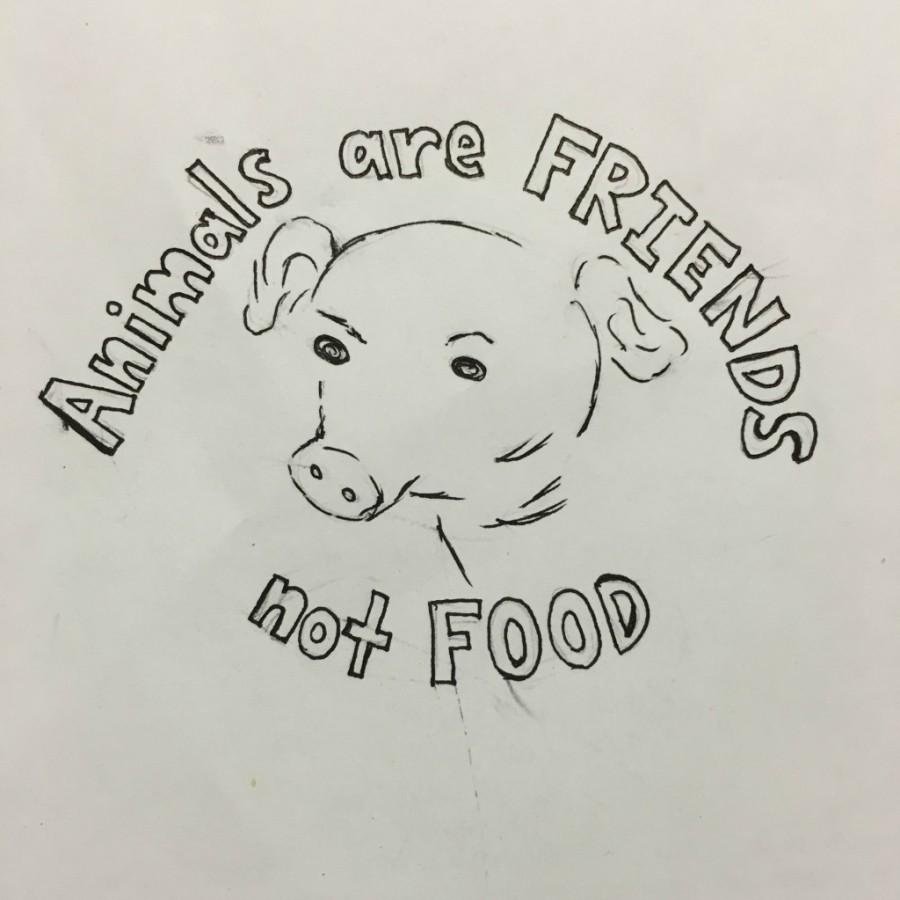Veganism
Two EHS Students Discuss Their Decision to be Vegan
March 21, 2016
Mention the word “vegan” at any social gathering and watch as the controversy begins. It’s the equivalent of opening a can of worms – a vegan can of worms, of course. Modern-day veganism has been hotly debated in the media recently, with vegan celebrities such as Ellen DeGeneres and Ariana Grande coming under fire for their dietary choices, but what does it really mean to be vegan and why do people choose to make such a dramatic lifestyle change?
Veganism, as defined by the the Vegan Society, is “a way of living that seeks to exclude, as far as is possible and practical, all forms of exploitation of, and cruelty to, animals for food, clothing, and other purposes.” Vegans do not merely exclude animal products from their diet, but also aim to reduce animal suffering in all other areas of their lives, whether that be through wearing synthetic (rather than animal-derived) fabrics, using toiletries and cosmetics that have not been tested on animals, or avoiding purchasing products from companies that support animal exploitation.
Out of the many reasons cited for being vegan, the issue of animal cruelty and inhumane treatment often comes up. Indeed, animals raised on factory farms or CAFOs (Concentrated Animal Feeding Operations), as they are known by the agricultural industry, live short and unpleasant lives. Here, animals are crammed into tiny wire cages, beaks and tails burned off without anesthetic, beaten and killed by underpaid workers, and eventually executed through one of several brutal methods, often while fully conscious.
Edna High School sophomore Pamela Del Monte Sanchez was first exposed to the issue after watching a documentary that depicted such scenes of graphic cruelty towards animals raised on factory farms. “I watched Cowspiracy [the documentary] and I saw how they treated the animals and decided that I didn’t want to support this industry anymore. So I made the change,” said Del Monte Sanchez.
Abby Franz, a junior at EHS, also went through a similar experience. Franz has been vegan for nearly six months, and as with many vegans, she doesn’t just have one reason for avoiding animal products. “I considered everything – the environment, my health, socio-economic reasons, … and of course, the animals – and it just made sense in every possible way,” said Franz.
In fact, beside the ethical implications, the reasons for going vegan vary widely. Some will cite environmental concerns – raising all of those cows and pigs requires millions of acres of land and billions of gallons of water that could repurposed for more efficient methods of food production. Others see the potential health benefits of veganism as its major advantage. With new studies indicating that vegans have lower rates of heart disease, cancer, and obesity, as well as an overall longer life-span, it’s not a surprise that the number of Americans who identify as vegan has more than doubled in the past few years.
So then why don’t more people go vegan? The bulk of criticism typically references the popular image of vegans as outspoken and self-righteous. “You don’t want to be pushy or annoying but you also want to share what you know. I think that’s the hardest thing about it; that it’s just so hard to talk about,” said Franz, who, despite receiving the support of her friends and family, has found veganism to be isolating at times.
So, despite the potential benefits of a vegan diet, there are inherent drawbacks involved. Those who follow a strictly plant-based diet must be careful to consume an adequate amount of Vitamin B-12 (which is only found in animal products), Vitamin D, calcium, and iron. “Definitely get a blood test before starting, to see if you’re healthy,” recommends Del Monte Sanchez. There is also the issue of convenience – eating out, eating on the go, and eating around strangers. Del Monte Sanchez, who has been vegan for just under a year, agrees with this sentiment. “Going out with friends has definitely been hard. They’ll say something like ‘Oh, you’re vegan so you can’t eat that.’ And it just seems that everyone has an opinion on your diet,” said Del Monte Sanchez.
But despite these obstacles, Franz and Del Monte Sanchez intend to continue spreading awareness of the issue and promoting a vegan lifestyle. As for tips for anyone out there who is considering making the switch, Franz suggests: “Do as much research as you can and be super open-minded. … Learn about it for yourself and ask lots of questions. Above all, just start talking about it.”
